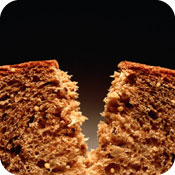 As a prenatal dietitian, I am constantly asked about low carbohydrate diets. Are low carb diets safe during pregnancy? Can a low carb diet help prevent too much weight gain during pregnancy? Are carbs bad for me? The list goes on and on. I know that radio, television, diet books, and magazines have given a lot of attention to the no or low-carbohydrate, high-protein diets.
As a prenatal dietitian, I am constantly asked about low carbohydrate diets. Are low carb diets safe during pregnancy? Can a low carb diet help prevent too much weight gain during pregnancy? Are carbs bad for me? The list goes on and on. I know that radio, television, diet books, and magazines have given a lot of attention to the no or low-carbohydrate, high-protein diets.
Let's check out the facts:
The Truth About Carbohydrates
- Carbohydrates are the ideal fuel for most body functions. It supplies the body with the energy needed for the muscles, brain and the central nervous system. In fact, the human brain depends exclusively on carbohydrates for its energy.
- Carbohydrates are found in fruits, vegetables, beans, dairy products, foods made from grain products, and sweeteners such as sugar, honey, molasses, and corn syrup.
- The body converts the digestible carbohydrate into glucose, which our cells use as fuel. Some carbs (simple) are broken down quickly into glucose while others (complex) are broken down and enter the bloodstream more gradually. Some glucose is stored as glycogen in the liver and muscles for future use. If there is extra glucose, it is converted into body fat. That means the faster that carbs are converted to glucose, the more that eventually converts to fat.
The Body's Immediate Reaction To Very Low Carbohydrate Diets
When there is a severe deficit of carbohydrate, the body has several immediate reactions.
- With no glucose available for energy, the body starts using protein for energy. Therefore protein is no longer available for more important functions: the making of cells, tissue, enzymes, hormones, and antibodies; and the regulation of fluid balance.
- When carbohydrates are lacking, the body cannot use its fat in the correct way. Normally carbs combine with fat fragments for energy. When carbs are not available, there is an incomplete breakdown of fat that produces a by-product called ketones. These ketones accumulate in the blood and in the urine causing ketosis. During pregnancy, ketosis can cause brain damage and irreversible mental retardation in the infant.
- However, ketosis does cause a loss or decrease in appetite. Why? It is a protection mechanism. It is to the advantage of a person in a famine area to have no appetite because the search for food would be a waste of time and additional energy.
- Due to the lack of energy and the accumulation of ketones, low carb diets can also bring on nausea, headaches, dizziness, fatigue, bad breath, and dehydration.
- Because of dehydration and the lack of fiber in the diet, constipation can result.
- Exercise and fitness performance is reduced on a low carb diet. Do not be surprised if your energy level is so low that you cannot make it through your normal workout routine.
The Long-Term Effects of Low Carb Diets
Continued ›
|
 As a prenatal dietitian, I am constantly asked about low carbohydrate diets. Are low carb diets safe during pregnancy? Can a low carb diet help prevent too much weight gain during pregnancy? Are carbs bad for me? The list goes on and on. I know that radio, television, diet books, and magazines have given a lot of attention to the no or low-carbohydrate, high-protein diets.
As a prenatal dietitian, I am constantly asked about low carbohydrate diets. Are low carb diets safe during pregnancy? Can a low carb diet help prevent too much weight gain during pregnancy? Are carbs bad for me? The list goes on and on. I know that radio, television, diet books, and magazines have given a lot of attention to the no or low-carbohydrate, high-protein diets. 





Member Comments